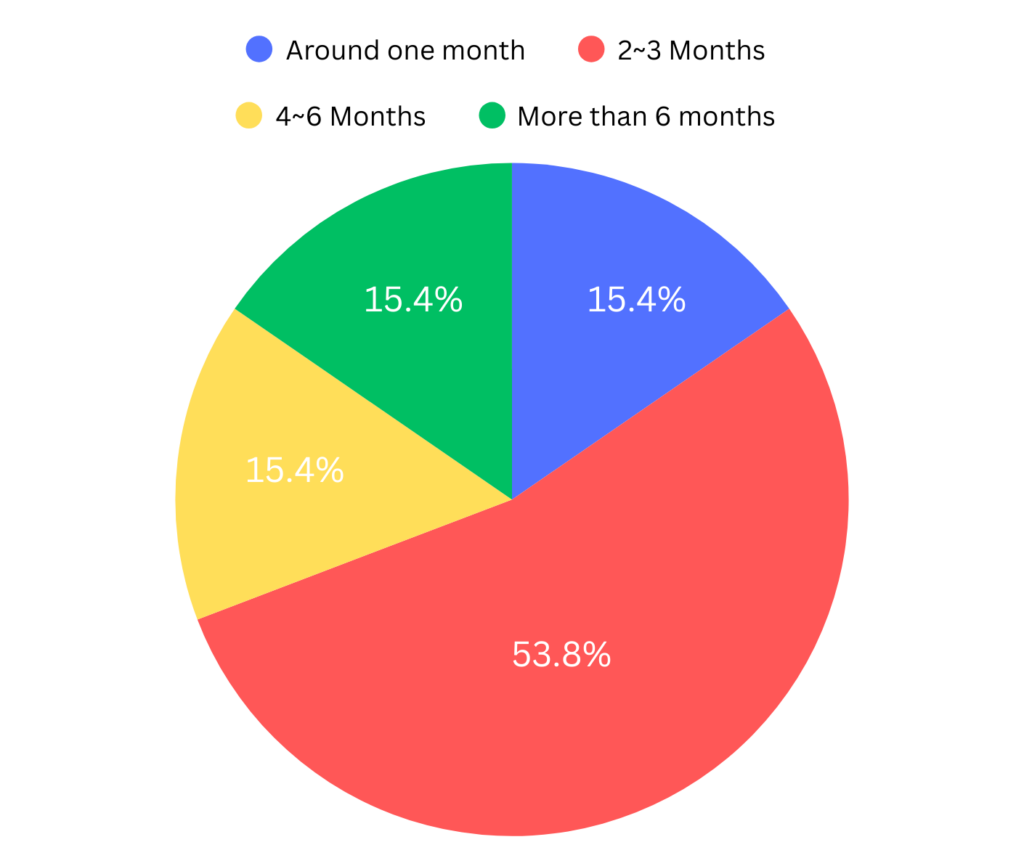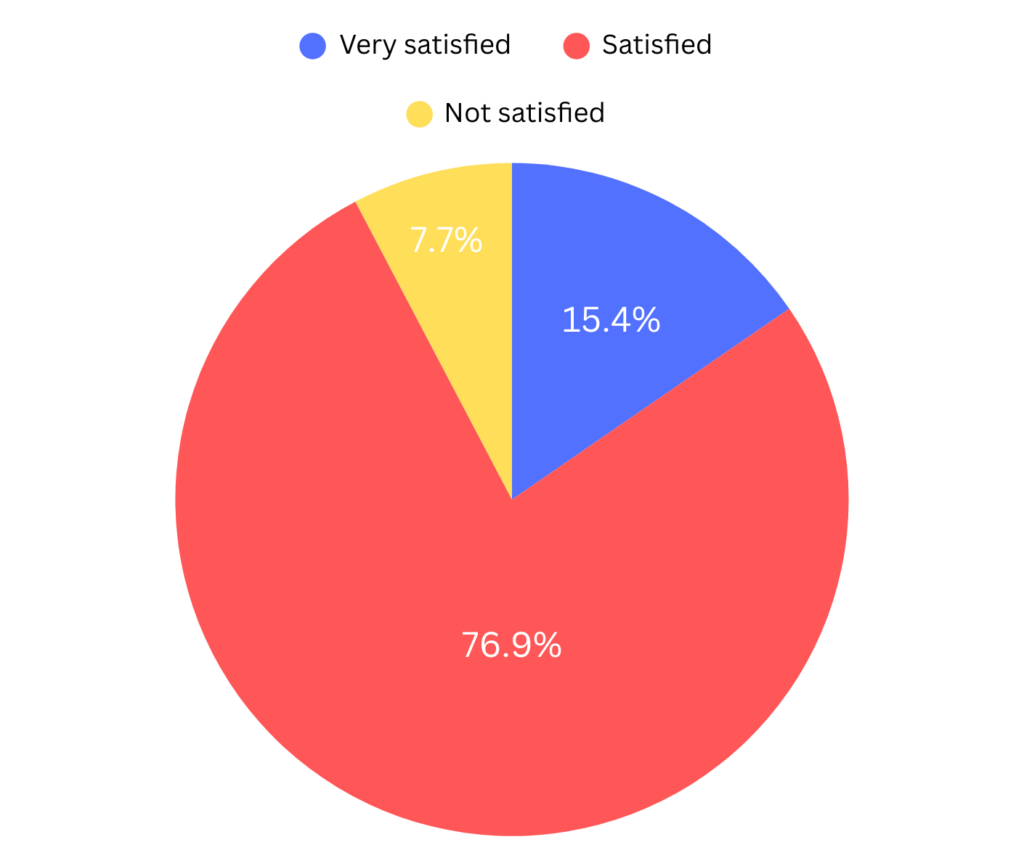Global Career Guide


- Jobs in Japan @ Daijob.com
- Global Career Guide
- Working in Japan
- Ask a Senpai! The Challenges of Job Hunting in Japan & Tips for Success.
Ask a Senpai! The Challenges of Job Hunting in Japan & Tips for Success.

This is a job site that has supported the career transitions of 810,000 English-speaking professionals—Daijob.com. For over 25 years, countless individuals, from English teachers and IT engineers to sales professionals handling international business, have used Daijob.com for job hunting and have found their ideal jobs in Japan through our platform.
To provide real insights into job hunting in Japan, we surveyed 13 professionals who have experienced the process firsthand via Daijob.com. These individuals, aged 20 to 40, are primarily based in the Tokyo metropolitan area and have resided in Japan for varying lengths of time—anywhere from less than a year to over five years. Their careers span a range of fields, including consulting, IT, and education.
Job Hunting in Japan: Typical Timeline
How long does it typically take to go from job hunting to landing an offer?

The most common job search duration is 2 to 3 months, with over half of respondents falling within this timeframe. This might be a good reference point if you’re considering a career change. While two individuals secured a job in about a month, thorough preparation likely played a key role. Daijob.com offers powerful resume tools, including automatic Japanese translation and AI-powered summaries, to help streamline your job search. Be sure to take advantage of these features!
Struggles of Job Hunting
We inquired about the challenges people have faced when changing jobs in Japan.

The biggest challenge people faced in Japan’s job-hunting process was ‘How to find the job you want.’ This also explains why many registered and used the job site Daijob.com.
Following that, ‘How to tackle the interviews (manners, attire, answers, etc.)’ and ‘How to create a Japanese resume’ were common concerns. Job hunting in Japan is so unique that even Japanese students undergo interview training before entering the workforce. Fortunately, the exclusive content in the ‘Global Career Guide‘ offers plenty of articles on Japanese corporate culture, which will surely be helpful.
You can refer to this article to write your resume. 📰 How to create an appealing Japanese resume
📰 These articles shed light on communication in Japan.

92% Express Satisfaction with Daijob.com’s Support!
We also asked respondents about their satisfaction with the job site Daijob.com.

As a result, 92% of respondents answered with either ‘Very satisfied’ or ‘Satisfied.’ What aspects contributed to their satisfaction? We explored this in the next question.
Satisfied with the number of job listings and the scout feature!
Daijob.com offers various features, including over 10,000 top-level job listings across industries and a scout function from companies. What aspects must have been the most helpful?


The most appreciated feature was the “Types and number of global job opportunities,” which addressed the challenges of job hunting in Japan. Following that, many mentioned the “Scout Feature,” which allows users to receive offers from companies showing interest. Additionally, some found the “Types and number of search criteria” useful, as it allowed for more tailored searches. There were also positive remarks about the “Career Fair,” a regular event that matches job seekers with companies.
It seems that everyone is making the most of not only the various features but also events and other opportunities!
Job Hunting Advice from Seniors
Finally, we asked experienced individuals to share their advice for those who are looking for a job change in Japan!
“Do not just change jobs. First, decide what you really want to do, and then move forward. Only then you be able to find true happiness.”
“I think a lot of job searching (in any country) relies a lot on luck and circumstance, so you have to play it like a game of chance: roll the dice over and over and over again so you increase the opportunities for the right job to align with your schedule.”
“Keep your profile up to date and don’t sell yourself short.”
“Networking chances such as HR or IT engineers, etc online or offline would help those looking for jobs.”
“No matter what company or what job, preparing for interviews at least 30 minutes will make a difference and will save you weeks and months.”
“Attend as many interviews as possible, even if you are not completely interested in the job on offer; you can learn a lot by gaining the interviewing experience. Also, check online sources for 履歴書 (Rirekisho) and 職務経歴書 (Shokumu Keirekisho) as these are pretty different than Resumes and C.V.s. ”
履歴書 (Rirekisho) – A standardized Japanese resume focusing on personal details, education, and work history, often following a fixed format and including a photo.
職務経歴書 (Shokumu Keirekisho) – A detailed career summary highlighting skills, responsibilities, and achievements, offering more flexibility in presentation.
“If you have friends in Japan, make connections with their friends to learn more about how they change jobs themselves.”
“Just do it.
“Do a thorough background check on the company to make sure you fit in their environment.”
All of the advice is valuable and based on personal experiences. If you can take each piece of advice to heart, achieving your ideal job change will surely become much more attainable.
Now that you’ve read this far, your job search in Japan is already ‘Daijobu’ (= All right)!
Make your work life and living in Japan even better with ‘Daijob.com’!
Discover Your Next Role in Japan. Access more than 10,000 jobs for free!


